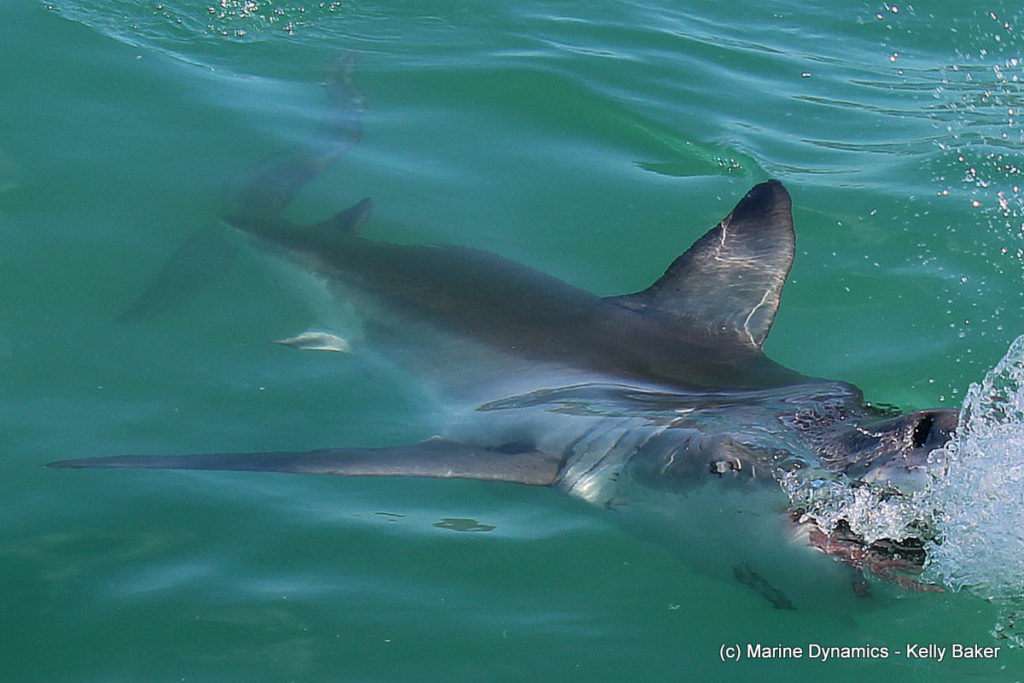Another great white shark was spotted in the Cape’s waters, the second one to be seen by the Marine Dynamics team since lockdown began in March.
Marine Dynamic’s Kelly Baker captured amazing images of the aquatic animal in Gansbaai on Monday, November 2.

This sighting follows after Marine Dynamics spotted their first great white shark off the coast of Gansbaai since lockdown was lifted. This sighting was very exciting with the 4.5m female shark coming close to the cage, giving those diving a great thrill.
Great whites are the largest predatory fish on Earth, according to National Geographic. They are typically found in cool, coastal waters and can grow to an average of 4.5 meters in length.
According to Marine Dynamics, great whites are believed to have been around for 70 million years, but their very first ancestors might have appeared as early as 200 – 500 million years ago. Scientists estimate they can live up to 50-80 years of age but there is no certainty.
Research shows that great white sharks continue to disappear from parts of the Western Cape coast. Two recent studies analysing the coastline captured no footage of these large sharks over a two year period, although smaller sharks were found to be thriving in the environment.
Earth.org reports that cage-diving operators began reporting a sudden decline in sightings of great white sharks around False Bay and Gansbaai in 2017.
“From 2010 to 2016, great white sharks were sighted in False Bay an average of 205 times per year, according to conversation and research organisation Shark Spotters. In 2018, the sharks were spotted 50 times; in 2019, nothing. In January 2020, the first great white shark in 20 months was seen in False Bay.”
The reason for this decline is not clear, although some posit that the arrival of orcas, apex predators that hunt sharks, in 2015 could be a contributor. Overfishing and pollution could also be factors supporting their dwindling population.
The loss of sharks would be an environmental tragedy as they provide vital ocean ecosystem services, says Gregg Oelofse, head of coastal management for Cape Town. Beyond this, great white sharks are important for South Africa’s tourism industry.
Picture: Facebook / Marine Dynamics

